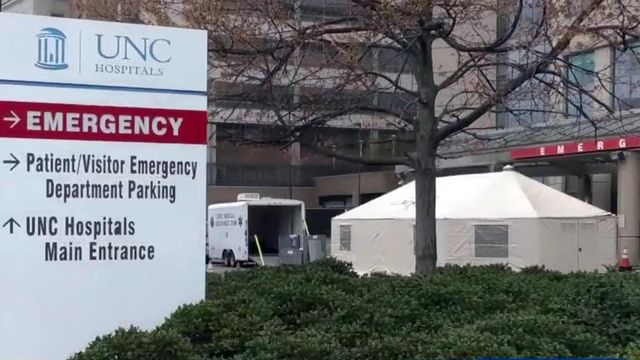NC Republicans ask hospitals to reconsider on vaccine mandates
55 House Republicans, but not the speaker, send letter to North Carolina hospitals.
Posted — Updated"While we recognize the importance of vaccines and respect the rights of private employers, we strongly encourage you to re-examine this requirement with greater input from employees and flexibility for those who have legitimate concerns," the letter states.
But Rep. Kristin Baker, R-Cabarrus, a medical doctor and another co-chair, did not sign on. Neither did Rep. Donny Lambeth, R-Forsyth, a retired hospital executive, the fifth co-chair and a key Republican leader on health care issues.
House Speaker Tim Moore also didn't sign, though it's not clear why, and his office didn't immediately say. Moore, R-Cleveland, expressed concerns similar to the letter's last week, when the state Department of Health and Human Services announced it would require vaccinations for workers at the health care facilities it runs.
Thursday's letter notes staff vacancy rates at some hospitals and suggests vaccine mandates will exacerbate the issue. Lawmakers also noted that the vaccines have only emergency approval right now from the Food and Drug Administration.
"It is simply unfair to force (employees) to choose between their job and taking a vaccine that is only authorized for 'emergency use only,'" legislators wrote.
The North Carolina Healthcare Association, which lobbies for hospitals at the statehouse, pushed back Thursday on any suggestion that mandate decisions were hasty. Hospital leaders have been talking to employees, some of the first to be eligible for an initially limited vaccine supply, for months, NCHA spokeswoman Cynthia Charles said via email.
"Health system and hospital leaders have made these decisions based on current evidence that the vaccines work very well to prevent serious COVID illness and hospitalizations and have minimal side-effects," Charles said. "They wouldn't ask their teammates to do something that they believe would do harm to them."
Charles said more than a billion people worldwide are fully vaccinated and that, even under the emergency authorization, hospitals "are confident in the science and safety behind the vaccines."
As for concerns pregnant women may have, UNC Health said Thursday its workers don't have to get the vaccine during pregnancy and maternity leave but will need it when they return to work. The system also said, though, that "our medical experts, along with the American College of Obstetricians and Gynecologists, the Society for Maternal-Fetal Medicine and the American Society for Reproductive Medicine, all strongly support COVID vaccines during pregnancy."
A Duke University Health System officials said in a statement Thursday afternoon that COVID vaccination "will not be a condition of employment for pregnant women at Duke until eight weeks after the completion of pregnancy.”
"While we expect all of our employees to recognize that COVID vaccination is safe during pregnancy and essential to preventing severe disease, we also respect the unique and deeply personal wishes people have to control health care decisions during pregnancy," the statement read.
"The vaccines developed under the Trump administration work," Moore, who appeared earlier this year with Republican Senate leader Phil Berger and Gov. Roy Cooper in a pro-vaccine ad, said when asked last week about those fundraising emails.
There have been some protests outside hospitals since the mandates were announced. The hospital association pushed back on those as well in a release that went out Wednesday evening.
"If you have concerns about COVID-19 vaccines, NCHA asks that you seek information from trusted sources like your doctor, local health department or hospital instead of listening to uninformed people on social media or gathered on sidewalks," the group said. "Health care providers see the cost of misinformation every day in people seeking care for serious COVID illness and in families mourning unnecessary deaths."
Related Topics
• Credits
Copyright 2024 by Capitol Broadcasting Company. All rights reserved. This material may not be published, broadcast, rewritten or redistributed.






